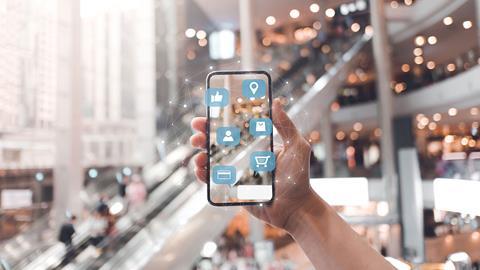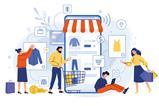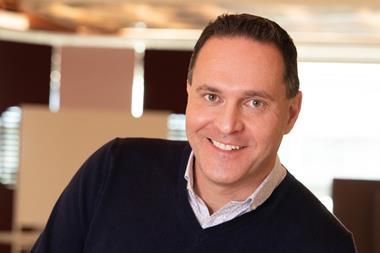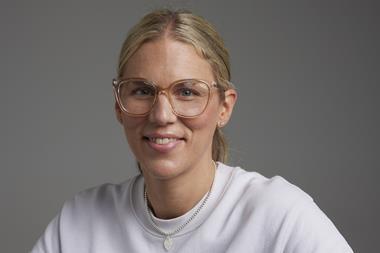The past 18 months have seen a transformation of behaviour, with buying online increasingly becoming the norm.
According to consultancy firm Bain, online will account for 30% of luxury sales by 2025 and shoppers’ needs are shifting. Here are four ways consumers are changing.
Technology continues to transform shopping habits
Consumers today want a highly personalised journey; brands need to be able to connect with them at any time, in any place, on any channel.
Facebook research found 21% of consumers have used an augmented reality or virtual reality device, for example, and 14% have purchased via those tools.
Facebook research found 21% of consumers have used an augmented reality or virtual reality device and 14% have purchased via those tools
Many brands are already responding to this desire for immediacy. For example, L’Oréal Malaysia held a 12-hour virtual beauty festival on Facebook Live, connecting with people via conversational commerce. The brand reached 2.6 million people, had 17,000 chats in 24 hours, and brought in a month of sales in 24 hours.
Social shopping is growing
The past 18 months have led to a jump in social shopping – offering the frictionless, personalised experience shoppers crave, and they appreciate the discoverability aspect.
Recent research from Facebook showed 39% of people weren’t intentionally shopping when they discovered a product on a Facebook platform.
Influencers play an important role here and the results can be dramatic. US beauty retailer Sephora collaborated with Instagram creators on ad content for its new fragrances and achieved an ad recall lift of 17 points compared with its usual brand assets and a 1.3% lift in purchase intent.
Influencers play an important role here and the results can be dramatic
It achieved this by working with neuroscientist Jessica Herrington, whose doctoral research translated fragrance notes into visual cues.
She created three AR filters that played with different ingredients – their textures, colours, shapes and movements. Meanwhile, 3D-animation designer Roman Bratschi created videos that highlighted the different notes in the fragrances and evoked each scent.
The role of the store is changing
Luxury stores are changing in response to these shifts. Luxury consumers have high expectations for a seamless omnichannel experience and will expect everything to be consistent across channels.
Harrods opened its first H Beauty store during the pandemic at Lakeside in Essex – its first store outside of London.
Luxury consumers have high expectations for a seamless omnichannel experience and will expect everything to be consistent across channels
Aimed at consumers younger than its traditional shopper, it worked with Instagram micro-influencers to launch, with the aim having an inclusive, relatable and accessible image.
The goal was online connection leading to in-store visits – and it worked. The campaign led to an increase in sales of 20% more than forecast, a footfall uplift of 15% more than predicted and a lift in standard brand awareness of 5%.
Immersive engagement and connection is crucial
Luxury consumers need to feel valued by brands – they want personal connections, a feeling of belonging and an engaging community.
Tiffany & Co is one brand to have tapped into this, using chat to create a personalised conversational experience. It closed the conversation loop with care-oriented chatbots and reached its customers in new ways to ensure they felt looked after.
Key takeaways
- Experiment with tech: If your consumers show signs of being interested in new technologies, such as livestream shopping and chat, make sure you’re there early. Shoppers will appreciate efforts to meet their changing needs.
- Be creative: Endless content means shoppers are spoilt for choice. Working with influencers and creators gives brands a chance to inspire via experiences that are beautiful, easy to use and tailored to the environments in which they’re delivered.
- Choose the right partner: Choose a partner with the reach and innovation needed. More than 3.5 billion people actively use one or more Facebook services and our shopping tools are among the most innovative in the world, leading the charge on the growth in social shopping.

Stefano Pardi is head of industry, retail and ecommerce at Facebook in the UK.
Stefano supports fashion and luxury clients with their brand and growth strategies. Prior to joining Facebook in 2019, Stefano held senior roles at Amazon Fashion, Expedia, Mastercard Advisor and American Express. He began his career with Deloitte Consulting in Italy before relocating to London in 2005. Stefano is passionate about supporting organisations and teams to embrace an agile mindset, leveraging rigorous data-led processes and the power of innovation to maximise their brands. Stefano holds an MBA with distinction from London Business School, a BA in Business and Economics from Luiss University, and is a certified coach with ICF.
Downloads
Discovery Commerce for Luxury Retail
PDF, Size 14.39 mb





























